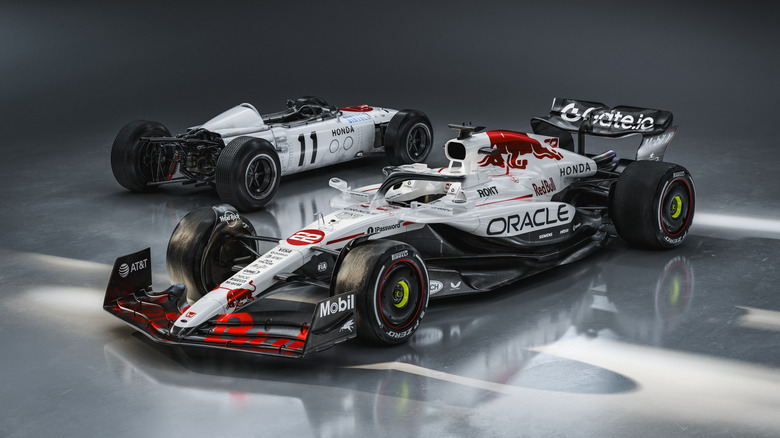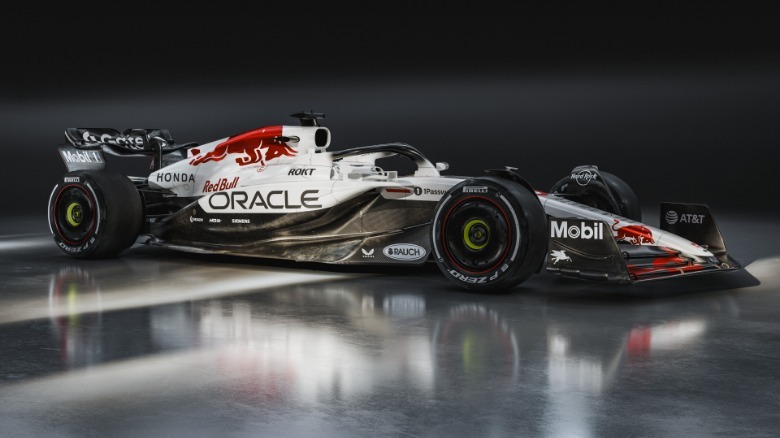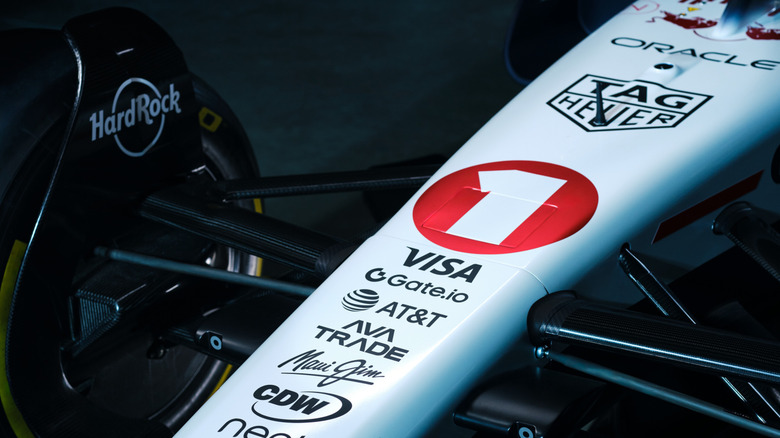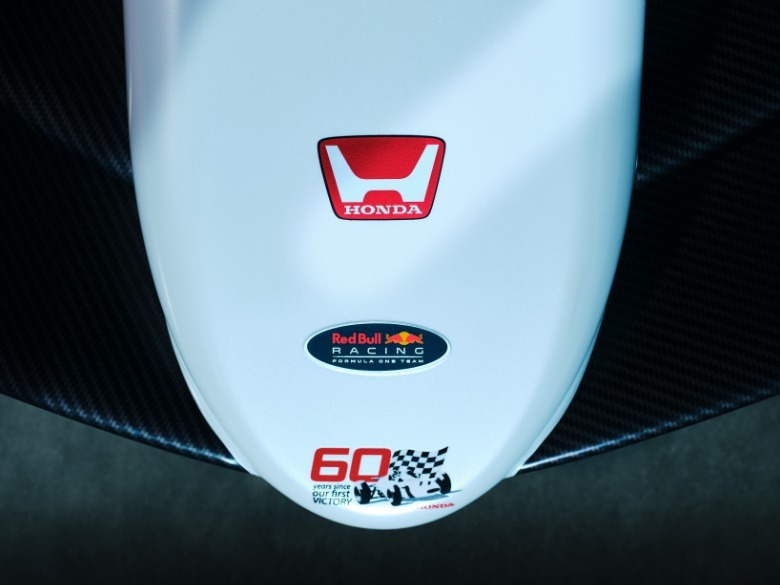Red Bull Racing is bringing 1960s elegance from Honda’s first stint in Formula 1 to Suzuka for this weekend’s Japanese Grand Prix. The team’s RB21 cars will be decked out in a Honda RA272 tribute livery, a retro scheme intended to celebrate the 60th anniversary of Honda’s first F1 win and the final year of the automaker’s partnership with Red Bull. The gesture carries a bit more meaning, as Japanese driver Yuki Tsunoda will debut with the team at Suzuka.
A Honda RA272, with American driver Richie Ginther behind the wheel, led every lap and won the 1965 Mexican Grand Prix. It was the first time a Japanese car had won an F1 race, a landmark moment for the country’s fledging auto industry. In fact, Honda had only been building cars for two years at that point, with the S500 roadster debuting in 1963. The factory team would only win one more time before withdrawing from the championship after 1968.
Red Bull’s retro liveries features all the appropriate details
The RA272’s striking livery was a product of its time. Sponsored liveries were banned from international competition until 1967, and F1 entries were required to compete with their car in specified national colors. As a Japanese team, Honda’s car was obligated to be painted white with a red circle, mimicking the Japanese flag. The pearl white used on the RA272 is still offered by Honda on its modern models as Championship White.
Red Bull’s translation of the RA272 livery features a similar shade of white, differing only for weight reasons. The red sun remains at the front of the car, used as a number plate for Max Verstappen’s No. 1 and Tsunoda’s No. 22. The traditional red-and-yellow Red Bull logo is now metallic red on the engine cover. The modern Honda wordmark has also been swapped for the sans-serif wordmark used on the 1960s F1 car. The nosecone also features two small but meaningful additions: an era-accurate Honda logo and a decal commemorating the RA272’s win.
While both Red Bull and Honda are gracious in what their partnership was able to achieve, it’s ending for a reason. The power unit deal reached a breaking point by 2020 over the team’s lack of competitiveness. The narrative was flipped on its head after Verstappen won the championship in 2021, but it was too late to salvage the alliance long-term. Red Bull bought the engine’s IP and rebranded it as a Red Bull Powertrains product ahead of the 2022 season. Red Bull will produce its 2026 power unit in-house with Ford support, while Honda will supply Aston Martin.





